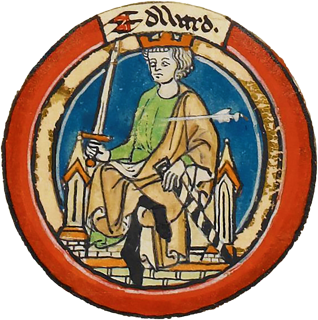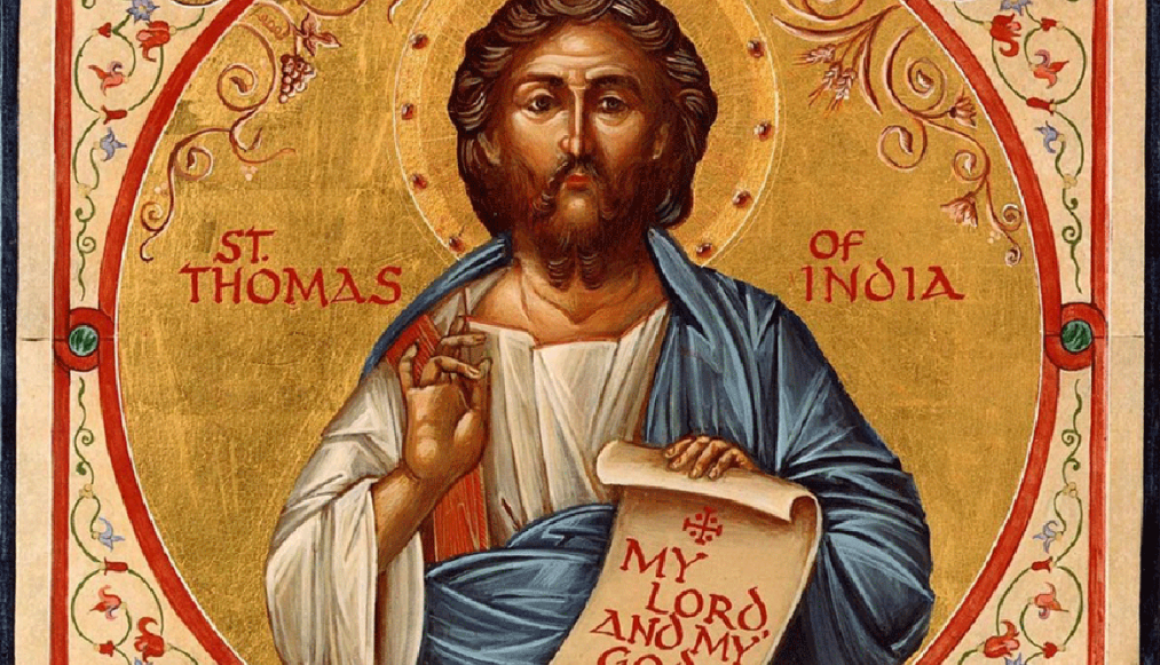2nd of Pascha (Thomas Sunday) 15th April 2018
Today, the first Sunday after Pascha, or Easter, is known as Thomas Sunday. To the English, St Thomas is popularly known as “Doubting Thomas”. For the reason we need to look no further than today’s Gospel. This expression has passed into English usage, although not perhaps as widely used as at one time. If someone refers to a person as a “Doubting Thomas” it means that that person is unable to accept what they have been told by another person without further proof. It is also likely that the person making such an accusation has no idea of the origin of the term.
The Gospels tell us that, after the arrest of Jesus most of his disciples went their own way. They were fearful that if they were caught and associated with him they would meet the same dreadful fate.
Nevertheless, Peter was nearby when Jesus was being questioned in the house of the High Priest, and John stayed with him even whilst he hung on the cross. You will be familiar with the icons and pictures which portray the crucified Lord on the Cross with his Mother on one side and John, the “Beloved Disciple” on the other.
What became of the rest of them we don’t know. We’re not told, yet it seems that most of them didn’t go far. They probably remained in or near to the city where they could be anonymous. The city itself was bursting at the seams with pilgrims who had come for the Passover.
No doubt they would have been welcome at the house of the mother of John Mark, where they had shared that last supper with Jesus. It was Mark who was to write the first of the Gospels, and the house was outside of the city, across the Kidron Valley, on the Mount of Olives, near or in the little town of Bethany where Jesus had raised Lazarus from the dead only a week or so earlier.
These were places where they would be safe, and could support one another in their sorrow and confusion at the tragic course that events had taken.
It was on what we now call Easter Sunday that rumours reached them that one of the women, Mary Magdalene, had reported to Peter and John that the tomb, in which they had laid the body in haste before the beginning of the Sabbath, had been found to be empty. The heavy stone which had closed the entrance to the tomb had been rolled away. Further than that, she claimed to have seen the Lord himself, alive.
Mary Magdalene, however, had stayed behind and her account of her experience of meeting the Risen Lord is one of the best known because it is such a touching story.
Then comes the account in this morning’s Gospel of how Jesus was suddenly with the disciples, who were meeting behind locked doors. He greeted them with “Peace be with you”, a fairly common greeting – Shalom in Hebrew, Salaam in Arabic, Pax Vobiscum in Latin, Eireni Pasi in Greek – a day to day greeting which has become a sacred greeting in all Christian languages and Liturgies. Its use by Jesus on this occasion after the Resurrection and subsequently seems to have given it a special significance.
But Thomas was not there. Perhaps he was even further away, but when they did tell him of their experience Thomas was not going to believe without cast iron proof. He would see and touch the wounds of the crucified – or he would not believe.
So it was that on the very next Sunday, today, the week after Pascha, they were again meeting together. This time Thomas was with them, and suddenly Jesus appeared among them with the very same greeting, “Peace be with you”. He then offered the proof that Thomas had demanded – the nail prints in his hands and feet, and the wound caused by the spear in his side. To this, Thomas responded “My Lord, and my God.” He needed no further proof.
The last words of the Gospel are directed by Jesus to each one of us, “Happy, or Blessed, are those who never saw me and yet have found faith. Our faith is grounded in a fact, attested to by those who met the Risen Lord, and whose lives were changed by that meeting. We read this morning in the Apostle of how they had become changed men and women. The strength of whose conviction had the power to change others and that, for me, is one of the greatest arguments for the truth of the Resurrection. It is that faith and conviction, though sometimes dim, that has never left the Church, to the extent that down the centuries many have even died the deaths of martyrs as witnesses to their Lord. and it has been truly said that, “The blood of the martyrs is the seed of the Church”.

